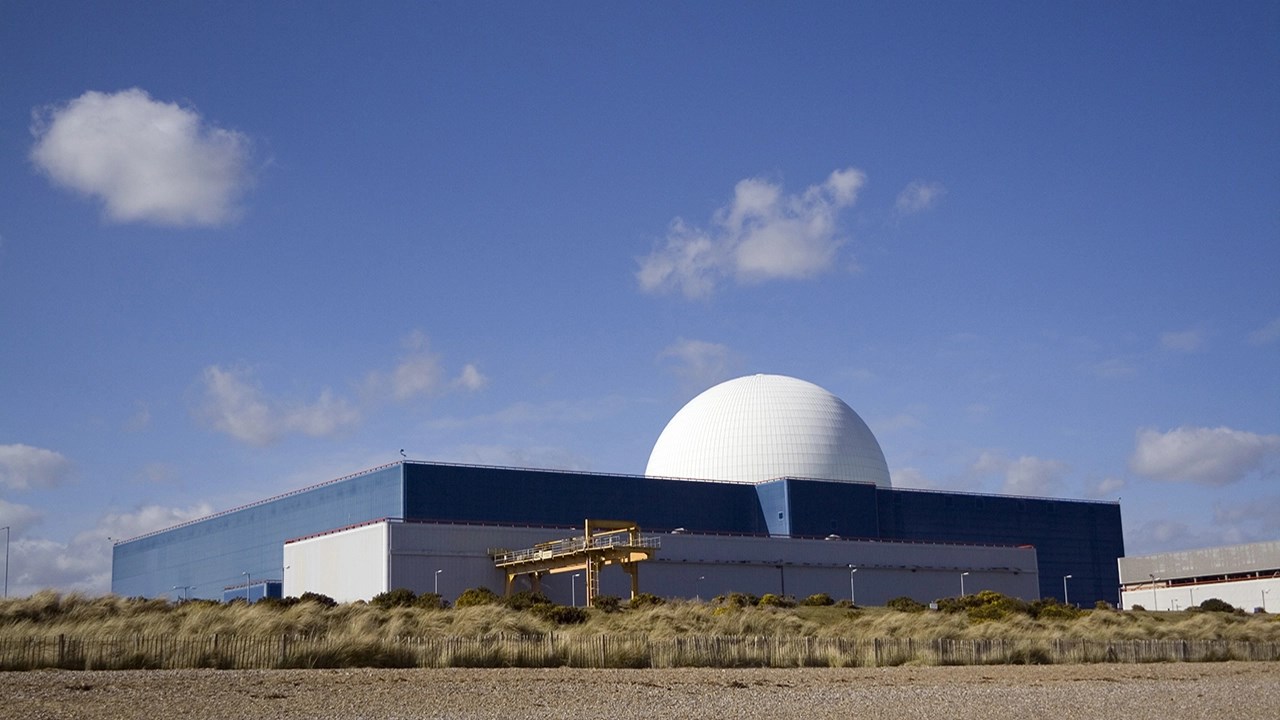UK ousts China from new nuclear project Sizewell
China's nuclear firm CGN was ditched from the construction of Britain's new Sizewell C nuclear power station on Tuesday, which will now be built with the remaining French partner EDF.
-

Sizewell B nuclear power station in Suffolk (ITV Anglia)
Britain ousted on Tuesday China's nuclear firm CGN from the construction of its new Sizewell C nuclear power station, which will now be built with the remaining French partner EDF.
The announcement came after Prime Minister Rishi Sunak warned that the "golden era" of UK-China relations was "over", adding Beijing posed a "systemic challenge" to UK interests and values. Sunak's Conservative government is stripping CGN of its 20% stake.
The UK intends to invest £700 million ($843 million) in the project, which EDF will match in a 50:50 joint venture.
Nuclear and renewables, such as offshore wind power, are seen as critical to ramp up Britain's energy security, after the Western sanctions on Russia forced household gas and electricity bills to skyrocket this year.
The Sizewell decision sparks questions about CGN's role alongside EDF in the construction of Hinkley Point, southwestern England, in Britain's first new nuclear power plant in more than two decades. "The UK government's investment in Sizewell C will support the project's continued development," the Department for Business, Energy, and Industrial Strategy (BEIS) said in a statement on Tuesday.
"The investment also allows for China General Nuclear's exit from the project, including buy-out costs, any tax due and commercial arrangements," it added.
Clean energy vs. fossil fuels
Sizewell, according to the UK, will provide cleaner energy than fossil fuels while also creating thousands of jobs in the local and national economies. "The government's historic £700 million stake in Sizewell C is positioned at the heart of the new blueprint to Britain's energy sovereignty, as plans to develop the new plant are approved today," the BEIS added.
"This is expected to create 10,000 highly skilled jobs and provide reliable, low-carbon, power to the equivalent of six million homes for over 50 years."
Before the announcement, UK Prime Minister Rishi Sunak stated that in response to Russia and China's actions, the British government will take a pragmatic approach to international relations. "Today the pace of geopolitical change is intensifying. Our adversaries and competitors plan for the long term," Sunak said, speaking at the Lord Mayor’s Banquet Monday.
Read next: 60% of UK companies to close as energy prices soar
He claimed that Russia "is challenging the fundamental principles of the UN Charter," while "China is consciously competing for global influence using all the levers of state power."
"In the face of these challenges, short-termism or wishful thinking will not suffice. We can’t depend on Cold War arguments or approaches, or mere sentimentality about the past. So we will make an evolutionary leap in our approach," the Prime Minister said in his first major foreign policy speech.
"This means being stronger in defending our values and the openness on which our prosperity depends. It means delivering a stronger economy at home, as the foundation of our strength abroad. And it means standing up to our competitors, not with grand rhetoric but with robust pragmatism," he continued.

 3 Min Read
3 Min Read








